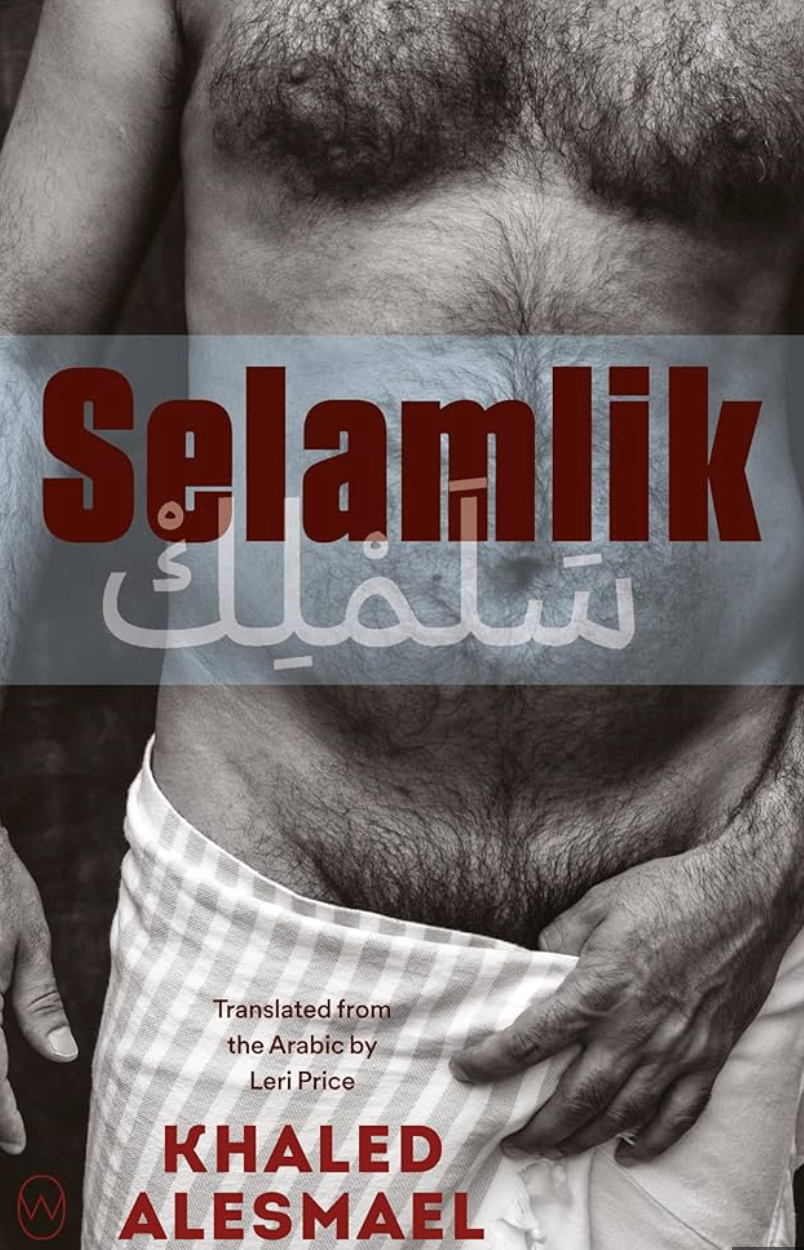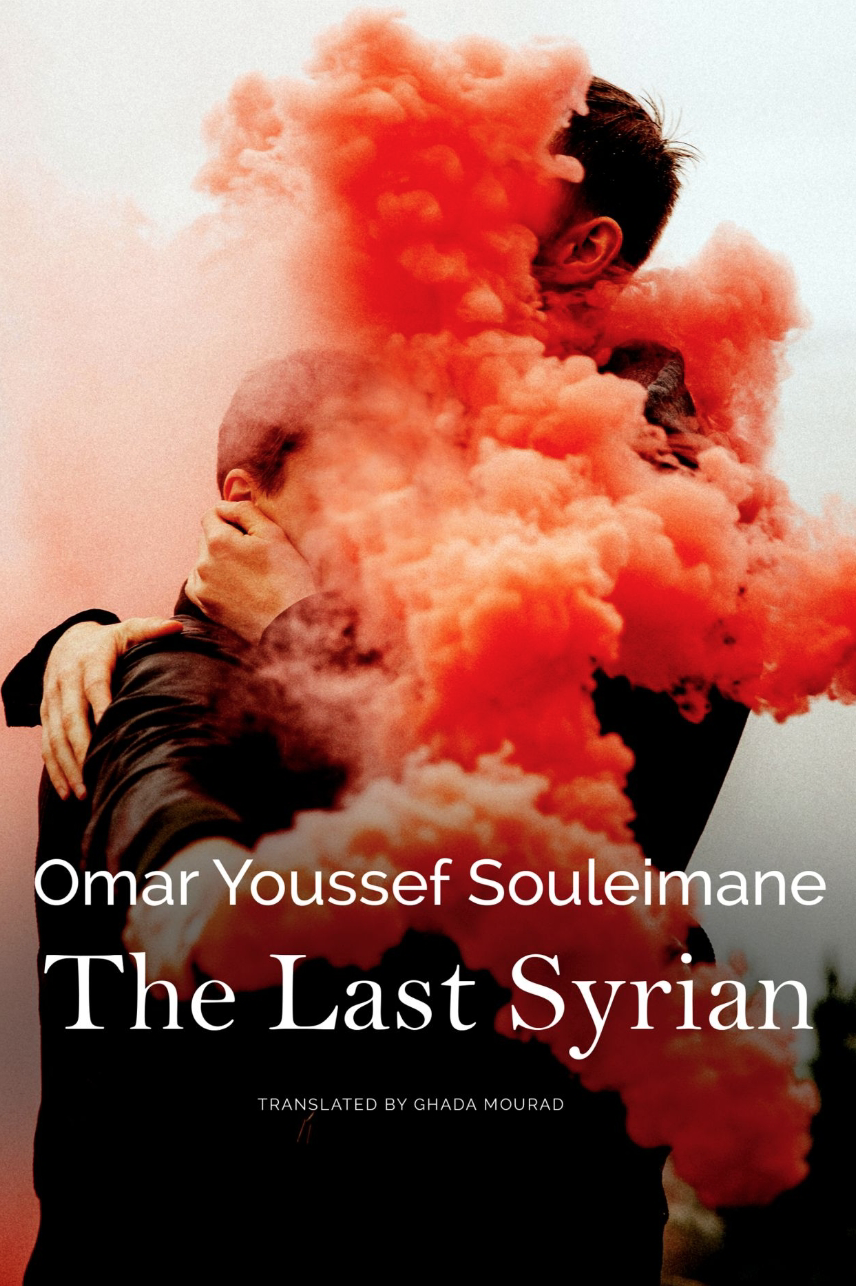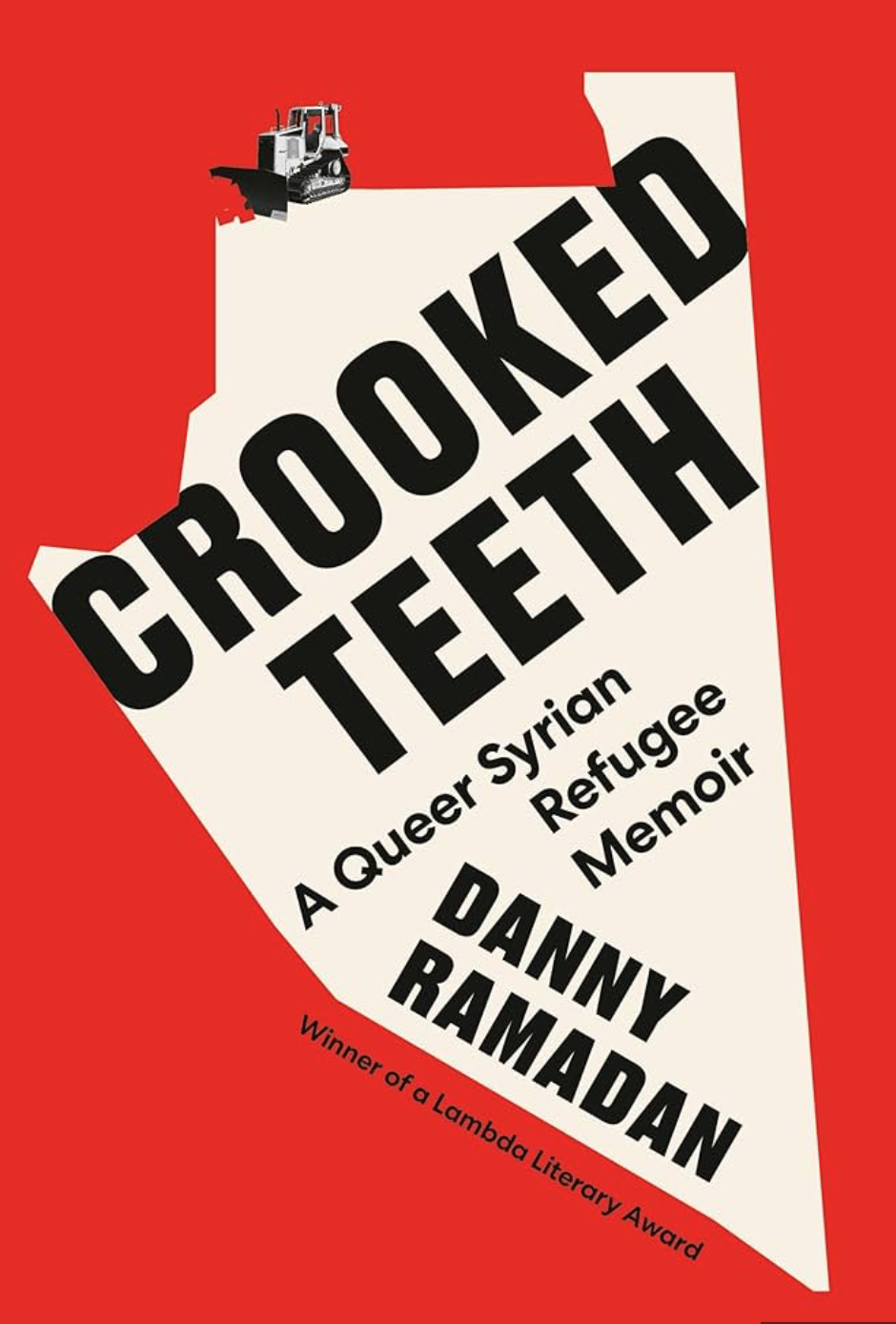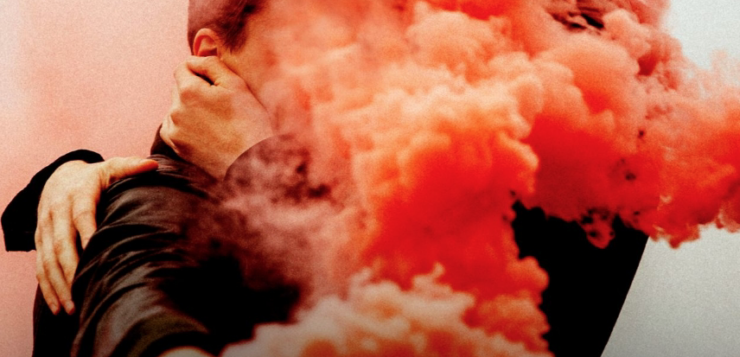 SELAMLIK
SELAMLIK
by Khaled Alesmael
Translated by Leri Price
World Editions. 240 pages, $19.99
 THE LAST SYRIAN
THE LAST SYRIAN
by Omar Youssef Souleimane
Translated by Ghada Mourad
Seagull Books. 172 pages, $21.
 CROOKED TEETH
CROOKED TEETH
A Queer Syrian Refugee Memoir
by Danny Ramadan
Viking. 304 pages, $26.95
THREE NEW BOOKS, two novels and a memoir, help reveal the struggles and victories of LGBT Syrians. For all the beauty of the country, Syria is a land of horrific oppression, where gay men in particular, fearing exposure from the police and informers, must find secret places for sexual encounters or social interaction. They remind us of the promise of the Arab Spring and the crackdown and refugee crisis that followed, which affected so many people’s lives.
Selamlik, an Ottoman Turkish term for men-only spaces, follows Furat, a young man living as a refugee in Sweden, as he remembers his life in Damascus. A literature student at university, he has a wonderfully physical relationship with his roommate, all the while worrying about getting caught. The noise from students in the halls hanging up mourning posters of the recently dead dictator Hafez al-Assad terrifies him.
Furat is driven by both fear and recklessness. He visits the cruising area Sibki Park, only to turn away after a man there tells him the police have it under surveillance. Instead, he goes to a hammam, a public bath where gay men gather to chat and have sex. He explores other hammams throughout the city, some attended by working-class men, others by more wealthy ones, finding a sense of community at both. He also visits Cinema Bilbos, a seedy movie theater for discreet encounters. While the story takes place in the 2000s, the atmosphere for gay men feels more like the U.S. in the 1950s.
While in Sweden, living with other refugees who make homophobic remarks, various objects and animals prompt Furat’s recollections. His mother keeps a beautiful red Quran in their home, which he recognizes later in an online execution video. He remembers the blue copy used by a memorization school he briefly attended so as to use their swimming pool, and the copy his religious studies and sex-ed teacher held up while reciting explicit details of the boys’ physical and sexual development. Furat notices the teacher’s growing bulge in his pants as he speaks.
Furat also creates sexual fantasies, including a threesome in the shower with other refugees. A language class becomes a wild orgy in his imagination, with sex, amputated body parts, and cannibalism. It is at once erotic, amusing, and disturbing.
Omar Youssef Souleimane’s The Last Syrian explores the complexities of the Syrian revolution and the fearsome powers of the government. Told in the present tense, the novel tells the story of a group of protestors in Damascus attempting to unite the people against the regime while dealing with their own personal challenges. Youssef has a brief relationship with the tailor Mohammed before fleeing to the city of Homs. He and Mohammed have an ongoing conversation through email about their lives and sexual histories, while Mohammed, not involved in protests, furtively hooks up with men and recounts episodes from Syrian and Arabic history of gay rulers’ love affairs. He grapples with his sexuality. Engaged to a woman he sees infrequently, he considers telling her about his homosexuality. She, meanwhile, is heavily involved in protests, eventually having to escape to another city. While Youssef and Mohammed’s email discussions are fascinating, the format keeps the emotion at a distance; one wishes they could speak in person.
Josephine opens her apartment to the protestors, helping to organize events and articulate the group’s mission. On one of Youssef’s few visits, she guesses he is gay, joking that he is the only man not to hit on her. She and fellow protestor Khalil are deeply in love, and they both react strongly against the fundamentalist Muslim faction’s attempts to co-opt their group. Khalil is captured by security forces and brutally tortured. These scenes are difficult to read, with painful electrocutions and whippings, as well as sexual assaults. Khalil ends the novel absolutely broken.
Bilal is a protestor who begins to align the group with fundamentalist Muslims, who enforce their harsh interpretation of Islam with violence. When the group wants to distribute gifts to families near Christmas, the religious faction demands no singing, firing into the air and ending the festivities when this is disobeyed. Bilal sides with the fundamentalists, even urging Josephine and Khalil to marry, which they absolutely refuse to do. This religious takeover adds to the sense of futility in this short novel; what starts as a hopeful, idealistic revolt against an oppressive government ends in violence, pain, separation, and death, with seemingly hardly any chance of success.
In his memoir Crooked Teeth, award-winning author Danny Ramadan speaks directly to readers, asking in the first chapter if he can trust us with his life story, if we “will see not only my story but also my art.” He refuses to go into detail about his six weeks of imprisonment and torture in Syria, explaining that describing it would neither help him process the experience nor help us understand his story.
Still, he shares plenty of trauma, from his parents’ near-constant fighting and his mother’s delusional outbursts to his angrily coming out to his father during a confrontation. Working at a newspaper in Egypt at the start of the Arab Spring, he suffers a concussion from a mob attack while assisting a reporter covering the protests and the government response. After emigrating to Canada as a refugee, his sponsor turns out to be a controlling, needy stalker.
He also recounts many moments of joy. As a teenager, he has a relationship of sorts with an older man, who nurtures his creativity and introduces him to gay culture. While technically not a boyfriend, when telling this experience to Canadian high school students, he refers to the man as his first boyfriend, to give students hope that if even a Syrian teenager can find love, so can they. After visiting the seedy Cinema Bilbos, he meets a trans woman who introduces him to a community of queer people, finding an alternative family. Years later, as an adult, he turns his home in Syria into a safe place for queer folks to congregate. At a benefit he helps throw, he meets a recently arrived lesbian couple deeply grateful for this familiar, welcoming place, amid the chaos and mystery of Canada.
The memoir is partly about Ramadan’s trauma and his attempts to deal with it. The title comes from one of his triggers, teeth, and images of teeth recur throughout the book. In one scene he counts the faces of people murdered in an attack, to get an accurate account for a news report; soon, all he can see is their teeth.
Charles Green, a frequent contributor to these pages, is a writer based in Annapolis, Maryland.






